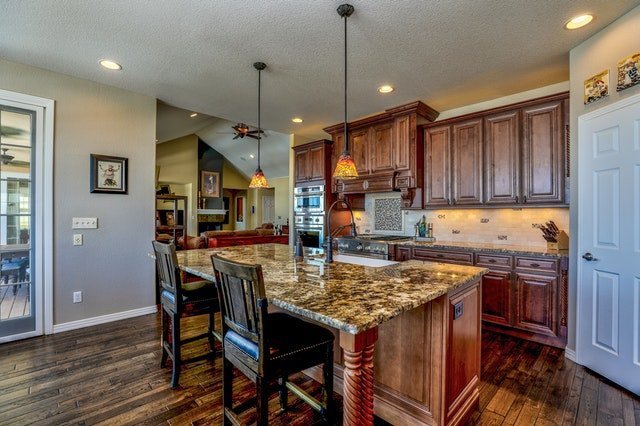Is it possible for water to stain marble? Yes, but only in rare situations where the municipal or well water is acidic. Marble is composed of calcium carbonate, which interacts with acidic water to form translucent or chalky dull patches.
It is important to know that clean water will not discolor or harm your marble surfaces.
While water deposits can discolor your marble, this is exceedingly uncommon. Water stains are caused in 99 percent of cases by the stone coming into touch with acidic substances such as fruit, coffee, juice, sauces, dressings, alcoholic beverages, and many others.
While the "water stains" appear to be caused by water reaching the stone's interior layers, they are not. Instead, they are the consequence of etching or corrosion of the countertop surface caused by the countertop's interaction with acidic chemicals.
Because the etch marks resemble water deposits, many homeowners refer to them as water spots.
How to Get Rid of Water Stains on Marble
To be clear, when we talk about eliminating water spots, we mean removing etch marks from countertops, which are the source of 99 percent of “water stains.”
To remove the etches, first clean the marble surfaces, then apply enough polishing powder to cover the stain, then spray water over the polishing powder 2-3 times using a spray bottle to dampen it.
When the etch mark is in place, dampen a cloth and use it to scrape the polishing powder over it for 20 seconds to 1 minute. If you're doing it correctly, the etch mark should start to fade.
To avoid scratching the marble surface, don't use too much pressure when rubbing it with the polishing powder.
A nice technique to do this is to swiftly massage the countertops at a high frequency until the etch mark is gone. Apply pressure to the countertop only if the mark does not disappear after 20 seconds.
After removing the etch mark, spray the marble cleaner on the surface and wipe it clean with a clean towel. When the surface is clean and free of excess polishing powder, it should be thoroughly dried.
In most situations, performing this once will remove the etch marks; however, if it does not remove the stain, repeat the process. If this still doesn't work, seek the assistance of a marble expert.
Is it possible to keep your countertops from etching?
Yes, however you won't be able to completely avoid the etching. The most you can hope for is 90 percent protection, which you may achieve by putting a chemical coating to the countertop.
The coatings are a fantastic idea for high-traffic areas like a hotel or bar, but you should avoid applying them on your home counters. This is due to the coating's ability to:
- Change the appearance of the stone by making it appear plastic.
- The countertops may require further particular care.
- The coating is more prone to wear than the stone, giving your surfaces a poor appearance.
- The coating can be difficult to apply appropriately at times and may necessitate the use of an expensive expert application.
Avoid coating and take careful maintenance of your marble surfaces in your home. This requires you to:
- At least once a year, seal the counters with a high-quality sealer.
- Use non-acidic cleansers to clean the surfaces. The ideal tools for the job are a sponge or soft cloth dampened with hot water and a specially designed marble cleaner.
- Avoid using soap as a frequent cleaning because it has been found to leave a dull coating on the surface when used for an extended period of time.
- Use cutting boards, trivets, and coasters when cutting or setting objects on the counters. These things will protect the surfaces from scratches and direct contact with fluids that might etch them.
Trivets keep your countertops from coming into touch with hot cookware, preventing scratching and burning.
Because marble is softer than other harder stones like granite, it generally takes more maintenance, so if you don't enjoy giving the countertops a lot of attention, have your local granite countertop installers install the countertops in your house.


0 comments